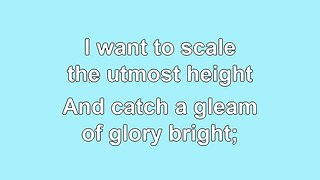Premium Only Content

#17, Higher IQ Predicts Higher Achievement (7-5-18)
http://lukeford.net/blog/?p=122460 Steve Stewart-Williams: "The IQ threshold hypothesis - the idea that, after IQ 120, additional IQ points don't translate into higher achievement - is false. Even among the top 1% (roughly IQ 137+), higher IQ predicts greater achievement. "
https://pdfs.semanticscholar.org/24f3/304736f158ab3cd9999e2343abf5f0b8d721.pdf
https://psychology-tools.com/empathy-quotient
Support the show | https://www.streamlabs.com/lukeisback
Sponsor: http://halseynews.com
Paypal: lukeisback@gmail.com (Luke Ford)
Paypal: kevin_grace@hotmail.com (Kevin Michael Grace)
Twitter: http://twitter.com/lukeford
https://twitter.com/KMGVictoria
Facebook: http://facebook.com/lukecford
Discord: https://discordapp.com/invite/cH6TdZJ
* If you watch the World Cup or the Super Bowl, you’ll see the differences between winning and losing is often inches. Real life is often like that…So superior processing power tends to win over inferior processing. Science!
Here are some excerpts from the paper:
* This section examines the range of over 4 standard deviations of ability that
exists beyond the cut score for the top 1%. It represents approximately the top one
third of the ability range (i.e., from around 137 to around 200 in IQ units). For
years, individual differences within the top 1% of ability have been demonstrated
to matter for a host of educational accomplishments (Benbow, 1992; Hollingworth
& Cobb, 1928). To what extent, however, do individual differences within this
range matter for concrete “real-world” accomplishments? Is there a threshold
point at which differences in ability cease to matter and other attributes become
more critical? In popular writing, this idea is common. For example, in Outliers:
The Story of Success, Malcolm Gladwell (2008, p. 79) wrote, “The relationship
between success and IQ works only up to a point. Once someone has an IQ of
somewhere around 120, having additional IQ points doesn’t seem to translate into
any measurable real-world advantage.”
* “psychometricians since have reached consensus that intellectual abilities are organized hierarchically (Carroll, 1993; Corno et al., 2002; Detterman, 2014; Hunt, 2011; Jensen, 1998a, 1998b; Mackintosh, 2011; Messick, 1992; Snow, Corno, & Jackson, 1996; Snow & Lohman, 1989; Warne, 2015). Different labels have been attached to the central dimension of this intellectual hierarchy’s apex. That is, g, fluid reasoning ability, general intelligence.”
* Adjusting the depth and pace of the curriculum to the rate at which each student
learned would “keep each student busy at his highest level of achievement in
order that he may be successful, happy, and good” (italics in original, Seashore,
1922, p. 644). For the gifted, Seashore recommended that instead of whipping
them into line, we “whip them out of line.” Seashore (1930, 1942) leveraged this
idea when he marshaled his campaign for establishing honors colleges throughout
major U.S. universities. Although his name does not always surface in historical
treatments of the gifted movement, Seashore’s impact was profound (Miles,
1956). He traveled to 46 of the contiguous states within the United States meeting
with university officials to discuss the importance of honors colleges and more
challenging curricula and opportunities for the most talented university students
-
 4:01:58
4:01:58
Luke Ford
17 days agoNobody Is Coming (8-10-25)
52 -
 0:16
0:16
alexgzarate
2 years agoHigher
1 -
 3:28
3:28
Fresh Electronic Music 🎶
2 years agoGlass Petals - Higher
2 -
 3:19
3:19
Errik44
2 years agoHigher
27 -
 13:24
13:24
LetsBeHealthy
2 years agoTHE HIGHER SELF?
10 -
 11:04
11:04
ChristopherJhardwick
2 years agoHigher Ground
1 -
 3:04
3:04
Taaddite
2 years agofly higher
1 -
 0:32
0:32
HymnsofFaith
2 years agoHigher Ground V4
2 -
 11:02
11:02
ChristopherJhardwick
2 years agoHigher Ground Going Higher Part 5
4 -
 10:46
10:46
ChristopherJhardwick
2 years agoHigher Ground Going Higher Part 4
7